Description
ABSTRACT
Ministerial Power to Promulgate Tax Laws in Nigeria: A Review of the Taxes and Levies (Approved List for Collection)Act (Amendment) Order 2015
Prof Uche Jack-Osimiri,* John Ohaka** & Bamidele Ajinde***
This paper examines the effect of the Taxes and Levies (Approved List for Collection) Act (Amendment) Order 2015 ‘promulgated’ by the Minister of Finance on May 26, 2015. It attempts to appraise the legitimacy of this executive-made taxation law in the light of our
pre-existing jurisprudential line of reasoning. It concludes that this executive-made order has far-reaching effect beyond the mere delegated legislation and should at best constitute materials which the National Assembly would debate and apply the necessary legislative surgery debate before becoming law.
Keywords: Taxes and Levies Order, Minister, National Assembly, Taxation Statutes.
INTRODUCTION
Authority to Enact Tax Laws
The power to enact tax legislation, is the exclusive preserve of the National Assembly, although there are certain residual matters left for the States’ Houses of Assembly, pursuant to exclusive and concurrent legislative lists.1 The inevitable question is whether section 1(2) of the Taxes and Levies (Approved List for Collection) Act 19982 gives the Minister of Finance the authority to promulgate tax laws beyond the delegated legislation, in the light of the expansive provisions of the Taxes and Levies (Approved List for Collection) Act (Amendment) Order 2015. It is argued here that such power belongs to the National Assembly since they have authority to make laws for the good governance of Nigeria. The Ministerial Order may amount to statutory enactment whose legitimacy may well be determined anytime soon by superior courts of records. This is considering the fact that new items of taxes and levies have been included by the Ministerial Order by executive fiat rather than through authorised act of the legislature whose duty it is to make laws for peace, order and good governance3 including that of taxation.4 Taxation suggests a form of law-making5 by the National
* Ph.D. (NUIG Ireland), LL.M (London), BL (Lagos), LL.B (London), FCTI. Professor, Faculty of Law, Rivers State University, Port Harcourt and Adjunct Professor of Law, University of Calabar. Dean of Law RSU, 2003-2007; Foundation Dean of Law, Ebonyi State University, Abakaliki (2000-2003); Formerly Head of Department of Private Law University of Ado-Ekiti (1998-2000); Visiting Professor of Taxation & Business Law, Joint Tax Board Inspectors of Taxes Training School Lokoja, Akwanga and Kaduna Study Centres (2001-2008).
** Ph.D. (UPH), LL.M (RSU), BL, LL.B, B.Sc (Acctg), MBA (UPH). Lecturer in Law and Accounting, Rivers State University, Port Harcourt.
*** HND (Acctg Yabatech), B.Sc, M.Sc (Unilag), ACA, ACTI. Lecturer in Accounting, Yaba College of Technology Lagos.
The authors are thankful to the past Presidents of Chartered Institute of Taxation of Nigeria (CITN) (late) Emmanuel Osemene FCTI, MAC Dike FCTI, Gladys Olajumoke Simplice (Vice President), Justina Okoror FCTI and G. A. DaSilva FCTI Chairpersons of the CITN Education Committee, who provided us with the opportunities to present papers and update knowledge; and the anonymous referees for the insightful comments on the earlier draft.
- The examination of the legislative powers of the National Assembly and the States’ Houses of Assembly to enact taxation laws are outside the purview of this article.
- Cap. T2 Laws of the Federation of Nigeria 2004.
- Section 4(1) Nigerian Constitution 1999, Cap. C21, Laws of the Federation of Nigeria, 2004.
- Ibid, s. 4(2), (3), (4)(a)(b).
- Achara Race, ‘Can Nigerian Local Government Councils Autonomously Impose Tax’ (2003) 47(2) Journal of African Law 221 at 222.

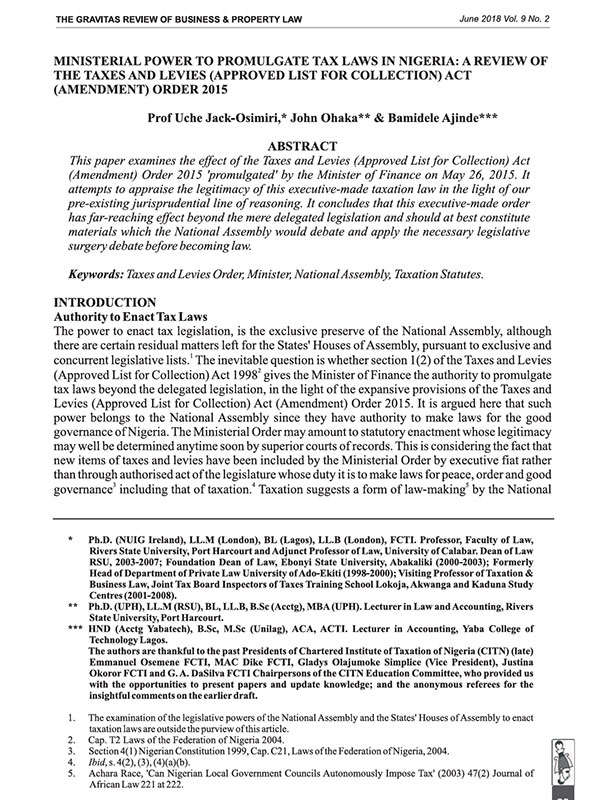
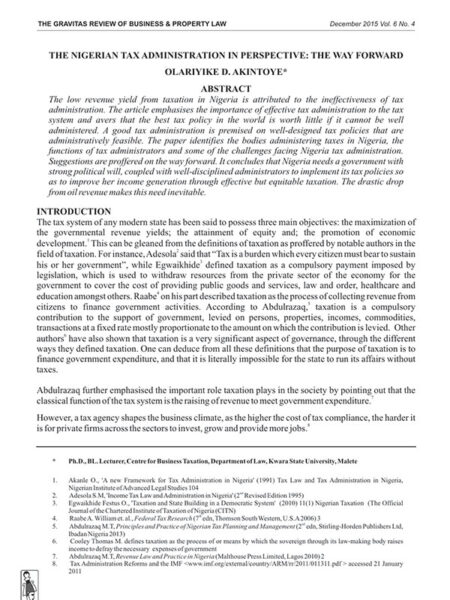
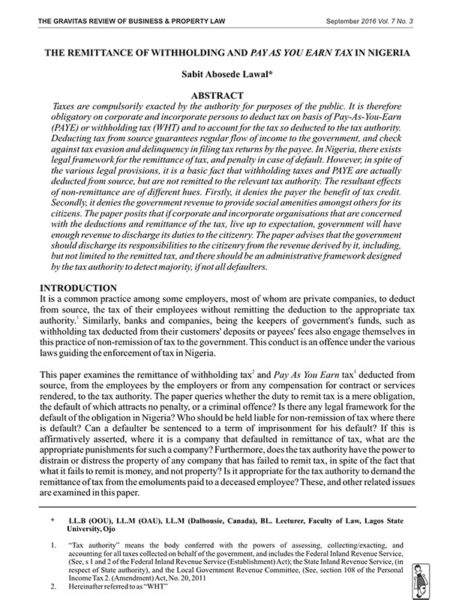
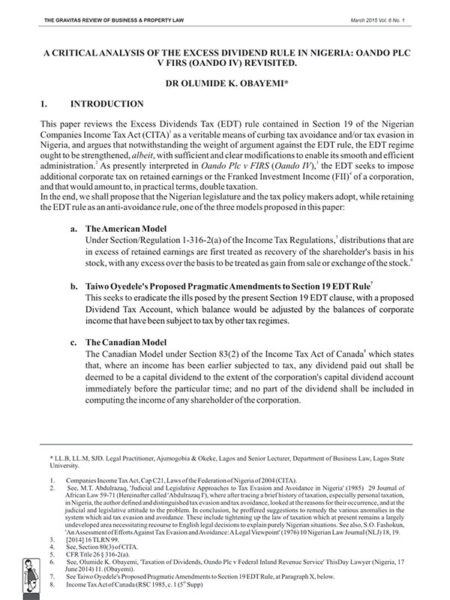
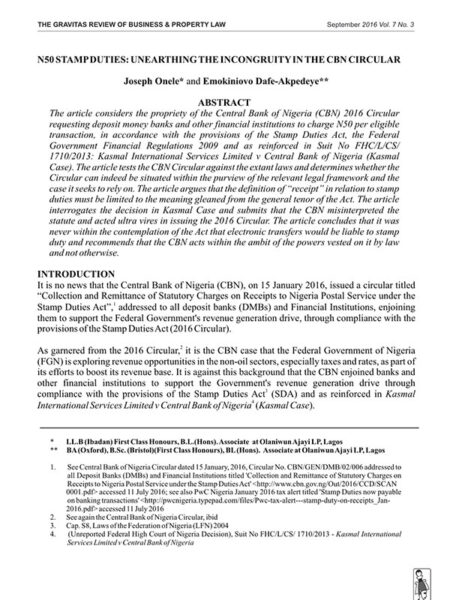


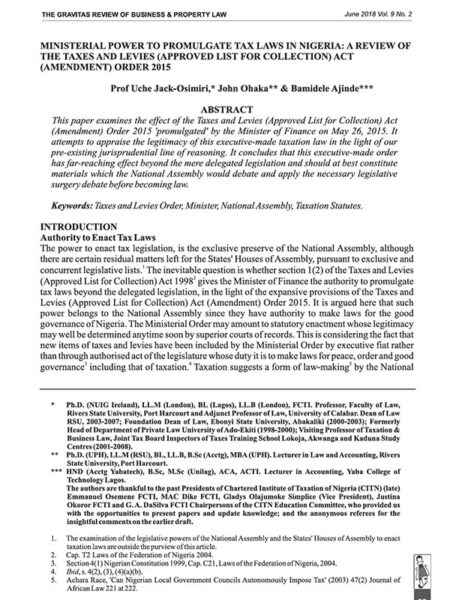
Reviews
There are no reviews yet.